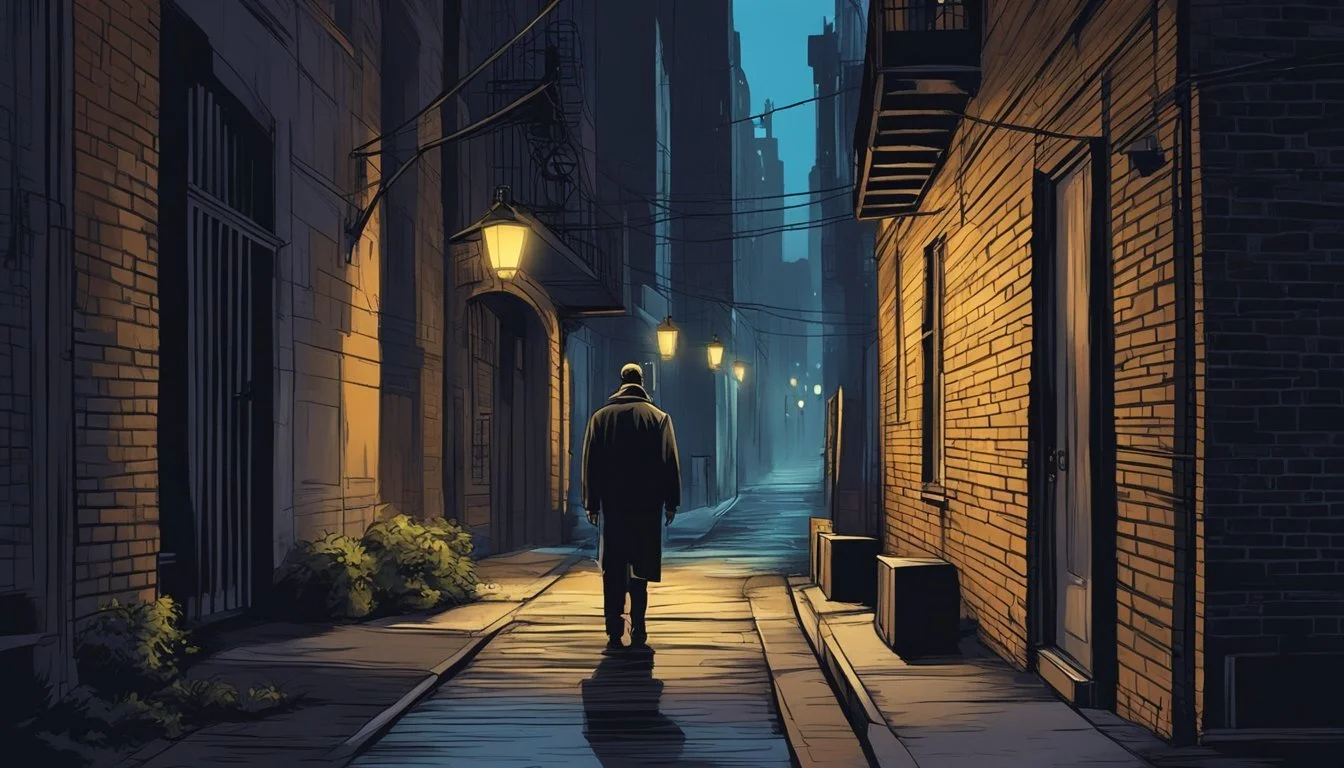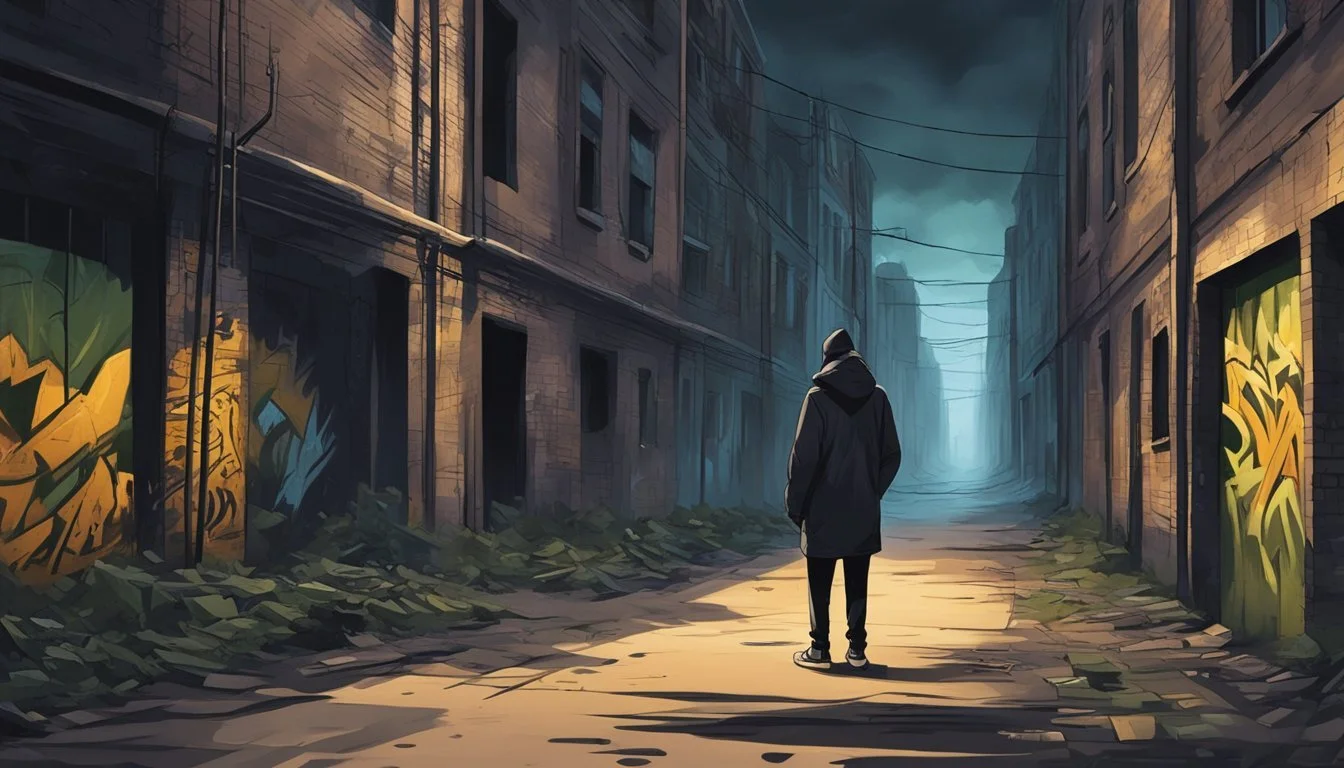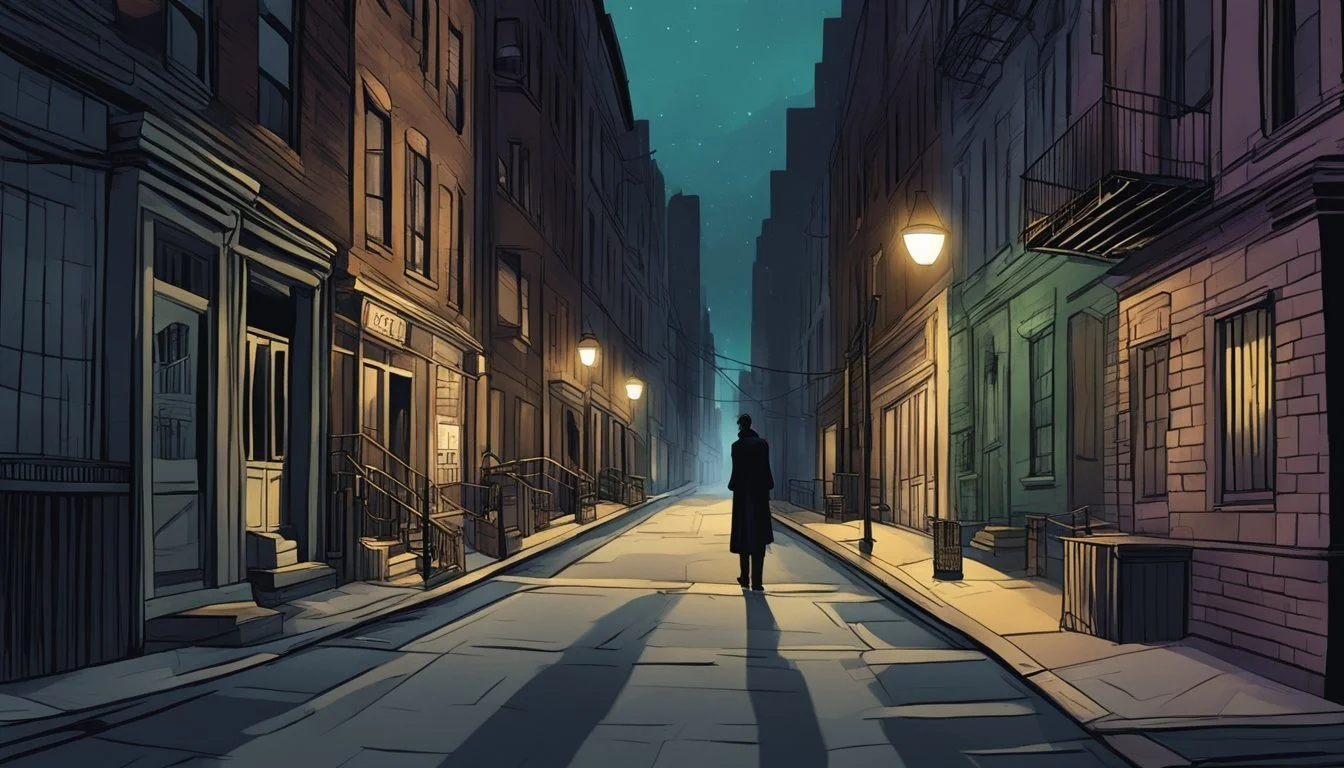Joel Rifkin: 7 Disturbing Films About New York's Most Prolific Serial Killer
A Cinematic Exploration of True Crime
Joel Rifkin gained notoriety as New York's most prolific serial killer in the early 1990s. His gruesome crimes against 17 women, mostly sex workers, shocked the public and dominated headlines. The horrific nature of Rifkin's murders has inspired several films exploring his psychology and the investigation that led to his capture.
These cinematic portrayals aim to shed light on Rifkin's motivations and methods while examining the impact of his killing spree. From documentaries featuring interviews with Rifkin himself to dramatized retellings, filmmakers have approached this dark chapter of New York's criminal history from various angles. The seven films discussed offer viewers different perspectives on one of America's most infamous serial killers.
1) 'The Joel Rifkin Murders' by Nancy Grace
'The Joel Rifkin Murders' is a television documentary produced and hosted by legal commentator Nancy Grace. The program aired as part of her investigative series on HLN.
Grace delves into the case of Joel Rifkin, examining his crimes and the investigation that led to his capture. The documentary features interviews with law enforcement officials and forensic experts involved in the case.
The film explores Rifkin's background and potential motivations for his killing spree. It also provides details on some of his victims and the methods he used to evade detection for years.
Grace's signature prosecutorial style is evident throughout the documentary. She presents the facts of the case while offering her own commentary and analysis on Rifkin's actions.
The program aims to give viewers a comprehensive look at one of New York's most notorious serial killers. It combines archival footage, reenactments, and expert insights to create a detailed portrait of Rifkin and his crimes.
2) 'Rifkin: The True Story' by John Smith
'Rifkin: The True Story' is a documentary film directed by John Smith that examines the life and crimes of Joel Rifkin. The film offers a comprehensive look at Rifkin's background, including his adoption and troubled childhood.
Smith's documentary features interviews with law enforcement officials involved in Rifkin's case. It also includes conversations with criminal psychologists who provide insights into Rifkin's motivations and mental state.
The film explores Rifkin's modus operandi and the details of his crimes. It covers his targeting of sex workers in New York City and Long Island during the late 1980s and early 1990s.
'Rifkin: The True Story' presents archival footage and crime scene photographs to illustrate the extent of Rifkin's killing spree. The documentary also delves into the investigation that led to Rifkin's capture in 1993.
Smith's film examines the impact of Rifkin's crimes on the victims' families and the community. It provides a balanced perspective on one of New York's most notorious serial killers.
3) 'New York's Killer' by Susan Brown
'New York's Killer' is a television documentary that explores the crimes of Joel Rifkin. Directed by Susan Brown, this film delves into the disturbing case that shocked New York in the early 1990s.
The documentary features interviews with law enforcement officials who worked on the Rifkin case. It provides insights into the investigation that led to his capture and conviction.
Brown's film examines Rifkin's background and possible motivations for his crimes. It presents a balanced view of the killer, avoiding sensationalism while still conveying the gravity of his actions.
'New York's Killer' also highlights the impact of Rifkin's crimes on the victims' families and the community. The documentary serves as a somber reminder of the human toll of his killing spree.
Through careful research and compelling storytelling, Brown's film offers viewers a comprehensive look at one of New York's most notorious serial killers. It stands as a valuable contribution to the true crime genre.
4) 'Hunting a Monster: Joel Rifkin' by Detective Jack
'Hunting a Monster: Joel Rifkin' offers a unique perspective on the infamous serial killer case. This documentary features Detective Jack, who played a crucial role in capturing Rifkin.
The film provides an inside look at the investigation process, revealing the challenges law enforcement faced in tracking down the elusive killer. Detective Jack shares his personal experiences and insights gained during the hunt for Rifkin.
Viewers gain a deeper understanding of the investigative techniques employed to build a case against the serial killer. The documentary also explores the psychological toll the investigation took on the officers involved.
'Hunting a Monster' includes interviews with other key figures in the case, offering a comprehensive view of the events surrounding Rifkin's capture. The film presents factual information about the crimes and the evidence that ultimately led to Rifkin's arrest.
This documentary serves as a valuable resource for those interested in true crime and the workings of high-profile investigations.
5) 'Rifkin's Nightmares' by Laura Adams
'Rifkin's Nightmares' is a psychological thriller that delves into the mind of Joel Rifkin. The film explores the serial killer's psyche through a series of vivid dream sequences and flashbacks.
Laura Adams directs this intense portrayal, focusing on Rifkin's troubled childhood and the events that shaped his murderous tendencies. The movie depicts Rifkin's inner turmoil and the escalating violence that led to his crimes.
Adams takes a unique approach by blending reality with surreal nightmare imagery. This technique provides viewers with a disturbing glimpse into Rifkin's distorted worldview and thought processes.
The film features strong performances, particularly from the actor portraying Rifkin. It presents a chilling interpretation of how a seemingly ordinary person can transform into a ruthless killer.
'Rifkin's Nightmares' stands out for its unflinching examination of a disturbed mind. It offers a haunting perspective on one of New York's most notorious criminals.
6) 'Grim Secrets: Joel Rifkin' by Tom Green
'Grim Secrets: Joel Rifkin' is a 2019 documentary film directed by Tom Green. It explores the chilling story of Joel Rifkin, one of New York's most notorious serial killers.
The film features interviews with law enforcement officials, forensic experts, and individuals close to the case. It provides a detailed look into Rifkin's troubled background and the events that led to his killing spree.
Green's documentary examines Rifkin's modus operandi and the psychological factors that may have contributed to his criminal behavior. It also delves into the investigation that ultimately led to his capture and conviction.
The film uses archival footage and reenactments to recreate key moments in the case. It offers viewers a comprehensive understanding of Rifkin's crimes and their impact on the victims' families and the community.
'Grim Secrets: Joel Rifkin' presents a balanced perspective, avoiding sensationalism while still conveying the gravity of Rifkin's actions. It serves as a stark reminder of the dark potential that can lurk within seemingly ordinary individuals.
7) 'In the Mind of Joel Rifkin' by Dr. Karen White
'In the Mind of Joel Rifkin' is a documentary film that offers a psychological analysis of the notorious New York serial killer. Dr. Karen White, a forensic psychologist, provides insights into Rifkin's mental state and motivations.
The film explores Rifkin's troubled childhood, his social isolation, and his fixation on violent fantasies. Dr. White examines how these factors may have contributed to his development into a serial killer.
Through interviews with law enforcement officials and people who knew Rifkin, the documentary paints a comprehensive picture of his crimes. It delves into the psychological patterns that drove him to target and murder at least nine women between 1989 and 1993.
Dr. White's expert analysis sheds light on the complexities of criminal psychology. The film raises questions about nature versus nurture and the potential for early intervention in preventing violent behavior.
'In the Mind of Joel Rifkin' offers viewers a chilling glimpse into the psyche of one of New York's most prolific serial killers. It serves as both a true crime documentary and a case study in forensic psychology.
The Infamous Crimes of Joel Rifkin
Joel Rifkin terrorized New York in the early 1990s, becoming the state's most prolific serial killer. His crimes primarily targeted sex workers, with a murder spree that lasted from 1989 to 1993.
Early Life and Background
Joel David Rifkin was born on January 20, 1959. He grew up in East Meadow, New York, adopted by Bernard and Jeanne Rifkin. As a child, Rifkin struggled socially and academically, often facing bullying from his peers.
His fascination with violence and prostitution reportedly began in his teenage years. This interest escalated over time, eventually leading to his first murder in 1989.
Rifkin's victims were primarily sex workers he encountered in New York City. He would typically pick them up, strangle them, and then dispose of their bodies in various locations across the state.
Arrest and Conviction
Rifkin's crime spree came to an end on June 28, 1993. Police attempted to pull him over for driving without license plates. A high-speed chase ensued, ending when Rifkin crashed into a utility pole.
Officers discovered a decomposing body in the back of his pickup truck. This led to Rifkin's arrest and subsequent confession to 17 murders.
During his trial, Rifkin was found guilty of nine counts of second-degree murder. He received a sentence of 203 years to life in prison. Rifkin is currently serving his sentence at Clinton Correctional Facility in New York.
Impact on New York City
Joel Rifkin's crimes left a deep scar on New York City in the early 1990s. His killing spree altered public perception of safety and prompted changes in law enforcement practices.
Psychological Aftermath
Rifkin's murders created widespread fear, especially among sex workers. Many women in the industry felt vulnerable and unsafe on the streets. The public became more wary of strangers and late-night activities.
Media coverage of the case heightened anxiety levels citywide. Some residents avoided certain areas after dark, impacting local businesses. Support groups formed for families of victims and those in high-risk professions.
The case also sparked debates about society's treatment of marginalized groups. Advocates called for better protection and support services for sex workers.
Law Enforcement Changes
Rifkin's crimes exposed gaps in police procedures for handling missing persons cases. Authorities faced criticism for not connecting the murders sooner. This led to improved communication between precincts and more thorough investigations of missing sex workers.
The NYPD created new protocols for tracking potential serial killings. They increased patrols in areas frequented by sex workers and implemented better evidence collection methods.
Training programs were developed to help officers identify patterns in violent crimes. The case also accelerated the adoption of DNA technology in forensic investigations.
Cooperation between different law enforcement agencies improved as a result of lessons learned from the Rifkin investigation.







